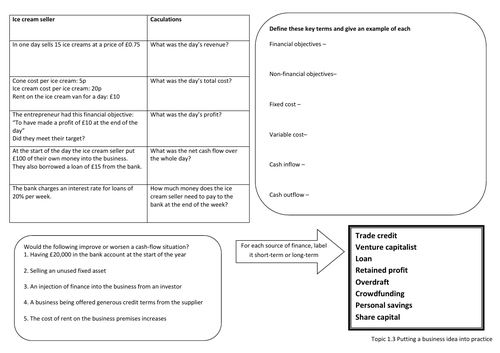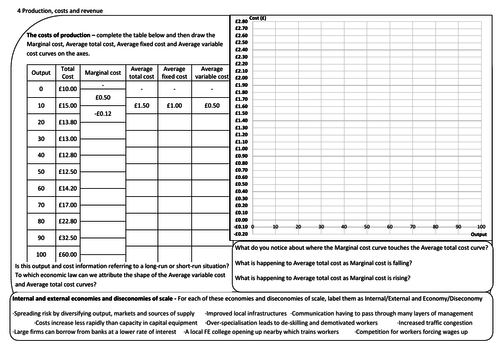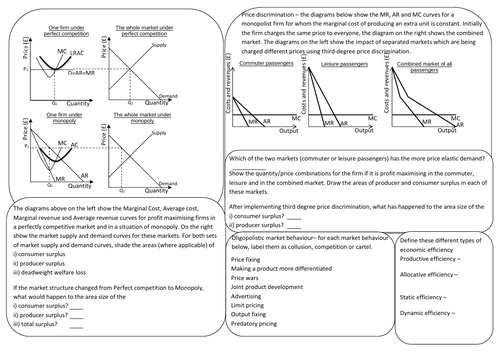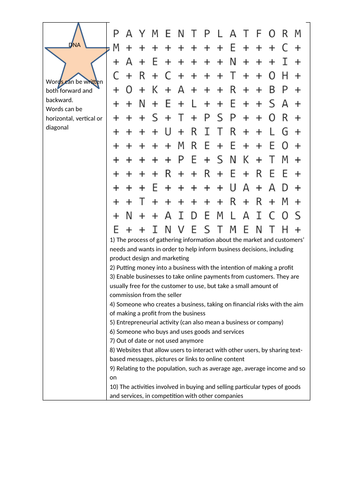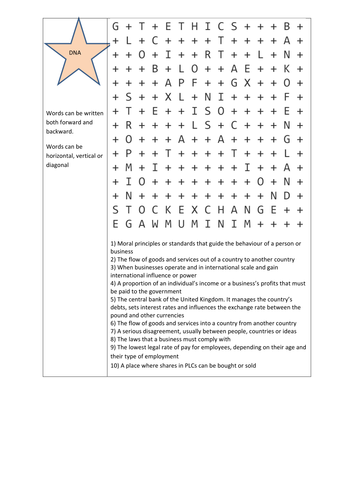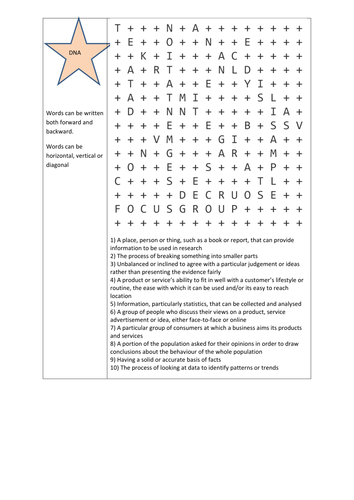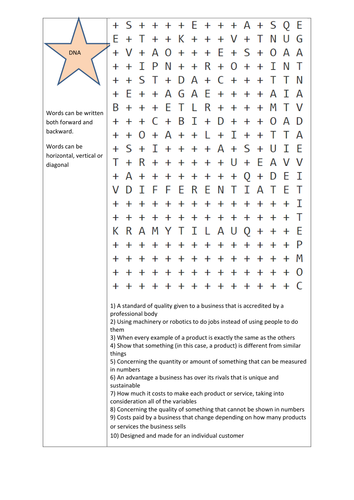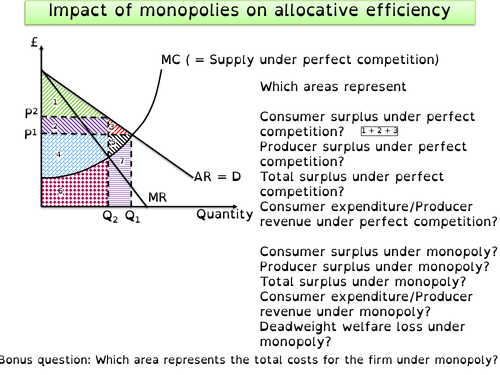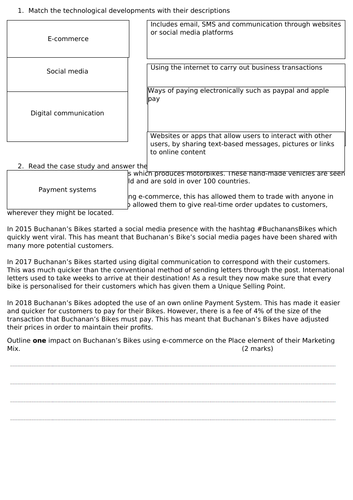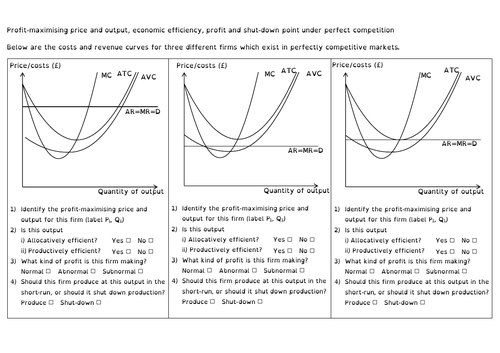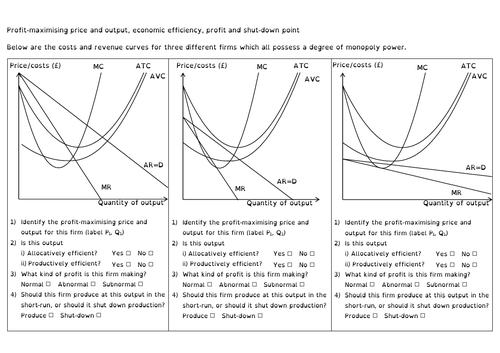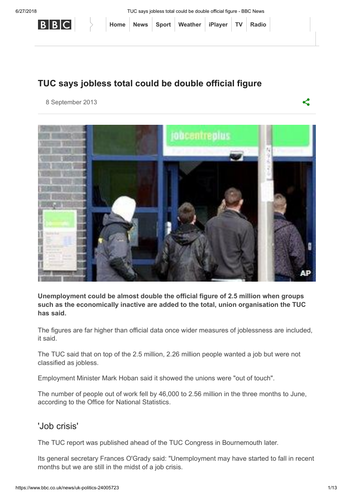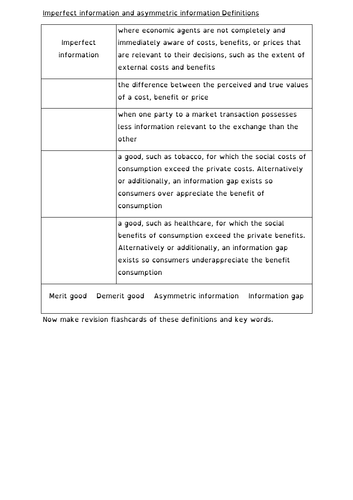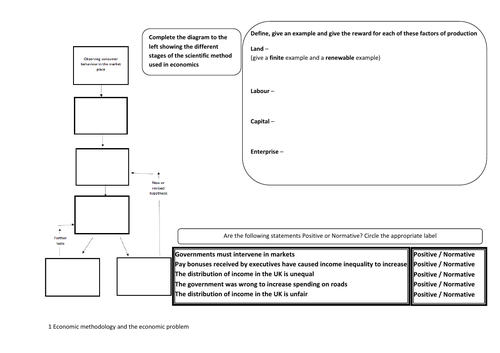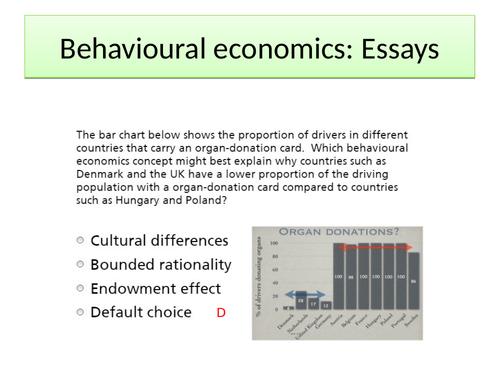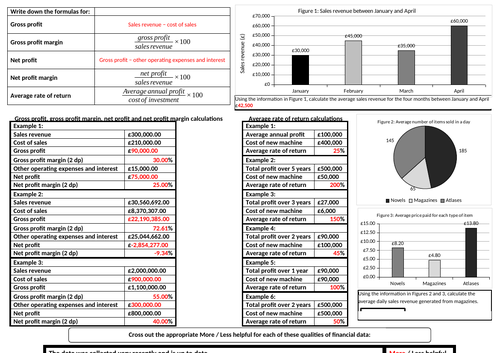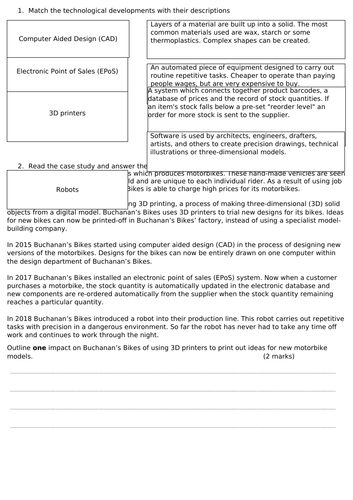154Uploads
200k+Views
207k+Downloads
All resources

Edexcel GCSE (9-1) Business Topic 1.3 revision knowledge organiser
Useful for revising Edexcel GCSE (9-1) Business topic 1.3 Putting a business idea into practice
Any suggestions/improvements/complaints please do comment and I will update it for future editions.
The full set of Edexcel GCSE (9-1) Business revision knowledge organisers can be found below:
Topic 1.1 Enterprise and entrepreneurship
Topic 1.2 Spotting a business opportunity
Topic 1.3 Putting a business idea into practice
Topic 1.4 Making the business effective
Topic 1.5 Understanding external influences on business
Topic 2.1 Growing the business
Topic 2.2 Making marketing decisions
Topic 2.3 Making operational decisions
Topic 2.4 Making financial decisions
Topic 2.5 Making human resource decisions

AQA A-level Economics Production, costs and revenue knowledge organiser
Knowledge organiser for the Production, costs and revenue topic from the AQA A-level Economics. Includes a set of example answers.
There is a version of this with AS and Year 12 Economics content which can be found here:
https://www.tes.com/teaching-resource/aqa-as-and-year-12-economics-production-costs-and-revenue-knowledge-organiser-12146216
Any suggestions/improvements/complaints please do comment and I will update it for future editions.

AQA A-level Economics Market structures knowledge organiser
Knowledge organiser for the Perfect competition, imperfectly competitive markets and monopoly topic from the AQA A-level Economics. Includes a set of example answers.
There is a version of this with AS and Year 12 Economics content which can be found here:
https://www.tes.com/teaching-resource/aqa-as-and-year-12-economics-competitive-and-concentrated-markets-knowledge-organiser-12146217
Any suggestions/improvements/complaints please do comment and I will update it for future editions.

Edexcel GCSE (9-1) Business Topic 1.1 key words wordsearch
Key words taken from Edexcel GCSE (9-1) Business textbook.
Some of the text on the presentation is in OpenDyslexic font - Free, OpenSource Dyslexia Typeface
http://opendyslexic.org/

Edexcel GCSE (9-1) Business Topic 1.5 key words wordsearch
Key words taken from Edexcel GCSE (9-1) Business textbook.
Some of the text on the presentation is in OpenDyslexic font - Free, OpenSource Dyslexia Typeface
http://opendyslexic.org/

Edexcel GCSE (9-1) Business Topic 1.2 key words wordsearch
Key words taken from Edexcel GCSE (9-1) Business textbook.
Some of the text on the presentation is in OpenDyslexic font - Free, OpenSource Dyslexia Typeface
http://opendyslexic.org/

Edexcel GCSE (9-1) Business exam technique 2 mark Outline questions
An activity on answering 2 mark Outline questions.
The font is OpenDyslexic - Free, OpenSource Dyslexia Typeface
http://opendyslexic.org/

Edexcel GCSE (9-1) Business Topic 2.3 key words wordsearch
Key words taken from Edexcel GCSE (9-1) Business textbook.
Some of the text on the presentation is in OpenDyslexic font - Free, OpenSource Dyslexia Typeface
http://opendyslexic.org/

Areas of surplus, revenue, expenditure and deadweight loss under perfect competition versus monopoly
Activity I use with year 13 to learn about the impact of monopolies on allocative efficiency.
The answers:
Consumer surplus under perfect competition? (1+2+3)
Producer surplus under perfect competition? (4+5)
Total surplus under perfect competition? (1+2+3+4+5)
Consumer expenditure/Producer revenue under perfect competition? (4+5+6+7)
Consumer surplus under monopoly? (1)
Producer surplus under monopoly? (2+4+6)
Total surplus under monopoly? (1+2+4+6)
Consumer expenditure/Producer revenue under monopoly? (2+4+6)
Deadweight welfare loss under monopoly? (3+5)
Bonus Question: (6)
The font is OpenDyslexic - Free, OpenSource Dyslexia Typeface
http://opendyslexic.org/

Edexcel GCSE (9-1) Business 1.5 Understanding external influence - Technology and business worksheet
Both .pdf and .docx file formats have been included
The font is OpenDyslexic - Free, OpenSource Dyslexia Typeface
http://opendyslexic.org/

Perfect competition: profit-maximisation, efficiency, profit and shut-down point
An exercise to identify profit-maximising price and output, economic efficiency, profit and shut-down point under perfect competition.
An answer sheet is provided as well as the answers being included on the attached slideshow.
The font is OpenDyslexic - Free, OpenSource Dyslexia Typeface
http://opendyslexic.org/

Microeconomics test - Demand, Supply, Price, Consumer Expenditure, and Consumer & Producer Surplus
A microeconomics test covering the topics described. A mixture of calculations, drawing curves and definitions. Mark scheme and feedback slideshow included.
The font is OpenDyslexic - Free, OpenSource Dyslexia Typeface
http://opendyslexic.org/
Updated 06/10/2017 to correct the spellings of equilibrium, response and parallel.

Monopolistic competition: profit-maximisation, efficiency, profit and shut-down point
An exercise to identify profit-maximising price and output, economic efficiency, profit and shut-down point under monopolistisic competition.
An answer sheet is provided as well as the answers being included on the attached slideshow.
The font is OpenDyslexic - Free, OpenSource Dyslexia Typeface
http://opendyslexic.org/

AQA A-level Economics Bank of England response to Covid-19
A 9 mark question on Bank of England’s response to Covid-19. Both .pdf and .doc file formats have been included.
The font is OpenDyslexic - Free, OpenSource Dyslexia Typeface
http://opendyslexic.org/

AQA A-level Economics Economic methodology and positive and normative economics
A set of work for Economic methodology and positive and normative economics. Includes a powerpoint presentation, a glossary of key words, a sorting activity, some multiple choice questions and two news articles to identify positive and normative economic statements.
Some of the text use is in OpenDyslexic font - Free, OpenSource Dyslexia Typeface
For a knowledge organiser for the whole AQA A-level Economics topic: Economic methodology and the economic problem see here

A-level Economics Merit and Demerit goods revision
A4 revision worksheet on Merit and Demerit goods. Includes a second sheet with suggested answers. Both .pdf and .doc file formats have been included.
06 May 2021 Update: Now includes a slideshow explaning the answers
The font is OpenDyslexic - Free, OpenSource Dyslexia Typeface
http://opendyslexic.org/

AQA A-level Economics Economic methodology and the economic problem knowledge organiser
Knowledge organiser for the Economic methodology and the economic problem topic from the AQA A-level Economics. Includes a set of example answers.
Any suggestions/improvements/complaints please do comment and I will update it for future editions.

AQA A-level Economics Behavioural economics paper 1 Specimen 2014 essays
A lesson I’ve put together with suggested content and an essay plan for the paper 1 specimen 2014 essays on Behavioural economics.
Traditional economic theory assumes that consumers make rational decisions that maximise their economic welfare, but behavioural economists disagree.
Using examples to illustrate your answer, explain how anchoring and loss aversion can affect an individual’s choices when deciding how to spend or save their income. [15 marks]
The Government would like to improve the well-being of the population by encouraging people to adopt a healthy diet. Using your knowledge of both traditional economic theory and behavioural economics, assess alternative policies that the Government might adopt to try to achieve its objective. [25 marks]
Any suggestions/improvements/complaints please do comment and I will update it for future editions.
The font is OpenDyslexic - Free, OpenSource Dyslexia Typeface
http://opendyslexic.org/

Edexcel GCSE (9-1) Business Topic 2.4 revision knowledge organiser
Useful for revising Edexcel GCSE (9-1) Business topic 2.4 Making financial decisions. Separate suggested answers included.
Both .pdf and .docx file formats have been included
Any suggestions/improvements/complaints please do comment and I will update it for future editions.
The full set of Edexcel GCSE (9-1) Business revision knowledge organisers can be found below:
Topic 1.1 Enterprise and entrepreneurship
Topic 1.2 Spotting a business opportunity
Topic 1.3 Putting a business idea into practice
Topic 1.4 Making the business effective
Topic 1.5 Understanding external influences on business
Topic 2.1 Growing the business
Topic 2.2 Making marketing decisions
Topic 2.3 Making operational decisions
Topic 2.4 Making financial decisions
Topic 2.5 Making human resource decisions

Edexcel GCSE (9-1) Business 2.3 Making operational decisions - Impacts of technology worksheet
Both .pdf and .docx file formats have been included
The font is OpenDyslexic - Free, OpenSource Dyslexia Typeface
http://opendyslexic.org/

